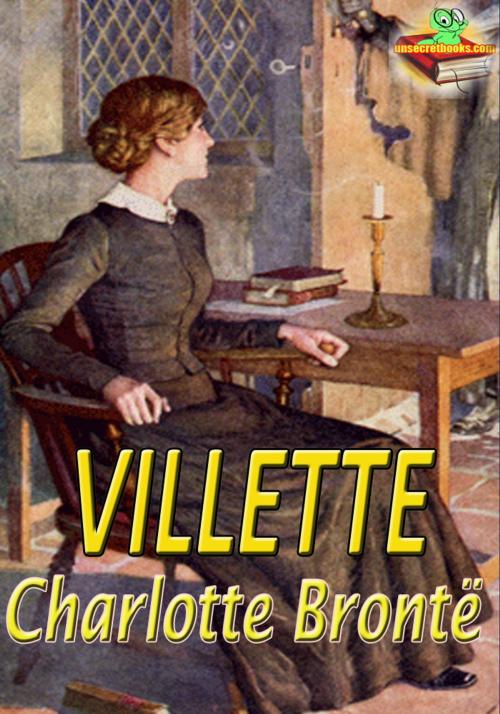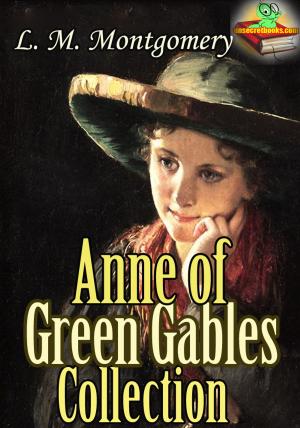| Author: | Charlotte Brontë | ISBN: | 1230000154169 |
| Publisher: | Unsecretbooks.com | Publication: | July 22, 2013 |
| Imprint: | Language: | English |
| Author: | Charlotte Brontë |
| ISBN: | 1230000154169 |
| Publisher: | Unsecretbooks.com |
| Publication: | July 22, 2013 |
| Imprint: | |
| Language: | English |
Villette is a novel by Charlotte Brontë, published in 1853. After an unspecified family disaster, protagonist Lucy Snowe travels to the fictional city of Villette to teach at an all-girls school where she is unwillingly pulled into both adventure and romance. The novel is celebrated not so much for its plot as its acute tracing of Lucy's psychology, particularly Brontë's use of Gothic doubling to represent externally what her protagonist is suffering internally.
Villette begins with its famously passive and secretive protagonist, Lucy Snowe, age 14, observing her godmother, Mrs. Bretton, Mrs. Bretton's son, Graham, and a young visitor, Paulina Home, known to everyone as "Polly." The child is a peculiar little thing and soon develops a deep devotion for the younger Graham, who showers her with attention until her stay is cut short when her father comes to take her away.
Lucy left the house soon after the child's departure, and after some initial hesitation, she was hired as a carer by Miss Marchmont, a rheumatic crippled woman. Soon she was accustomed to her new career and host, and started feeling content with the quiet lifestyle. However, in an evening with dramatic weather changes, Miss Marchmont magically regained all her energies and felt young again. She shared her sad love story of thirty years previously with Lucy, and concluded that she should try to treat Lucy better, be a better person since then and would get together with her dead lover through death. In the very next morning, Lucy found Miss Marchmont peacefully lifeless in bed.
In the ensuing years, an unspecified family tragedy forces Lucy into action, causing her to seek employment, and at age 23 she boards a ship for "Labassecour" (French for 'farmyard' and based on Belgium) despite not speaking a word of French on a hope that maybe she may find something in a new place. After arriving in the capital city of Villette, Lucy finds work as a teacher at Mme. Beck's boarding school for girls (which can be seen as a literary representation of the Hégers' Brussels pensionnat), and thrives despite Mme. Beck's constant surveillance of the students and staff.
Villette is a novel by Charlotte Brontë, published in 1853. After an unspecified family disaster, protagonist Lucy Snowe travels to the fictional city of Villette to teach at an all-girls school where she is unwillingly pulled into both adventure and romance. The novel is celebrated not so much for its plot as its acute tracing of Lucy's psychology, particularly Brontë's use of Gothic doubling to represent externally what her protagonist is suffering internally.
Villette begins with its famously passive and secretive protagonist, Lucy Snowe, age 14, observing her godmother, Mrs. Bretton, Mrs. Bretton's son, Graham, and a young visitor, Paulina Home, known to everyone as "Polly." The child is a peculiar little thing and soon develops a deep devotion for the younger Graham, who showers her with attention until her stay is cut short when her father comes to take her away.
Lucy left the house soon after the child's departure, and after some initial hesitation, she was hired as a carer by Miss Marchmont, a rheumatic crippled woman. Soon she was accustomed to her new career and host, and started feeling content with the quiet lifestyle. However, in an evening with dramatic weather changes, Miss Marchmont magically regained all her energies and felt young again. She shared her sad love story of thirty years previously with Lucy, and concluded that she should try to treat Lucy better, be a better person since then and would get together with her dead lover through death. In the very next morning, Lucy found Miss Marchmont peacefully lifeless in bed.
In the ensuing years, an unspecified family tragedy forces Lucy into action, causing her to seek employment, and at age 23 she boards a ship for "Labassecour" (French for 'farmyard' and based on Belgium) despite not speaking a word of French on a hope that maybe she may find something in a new place. After arriving in the capital city of Villette, Lucy finds work as a teacher at Mme. Beck's boarding school for girls (which can be seen as a literary representation of the Hégers' Brussels pensionnat), and thrives despite Mme. Beck's constant surveillance of the students and staff.















